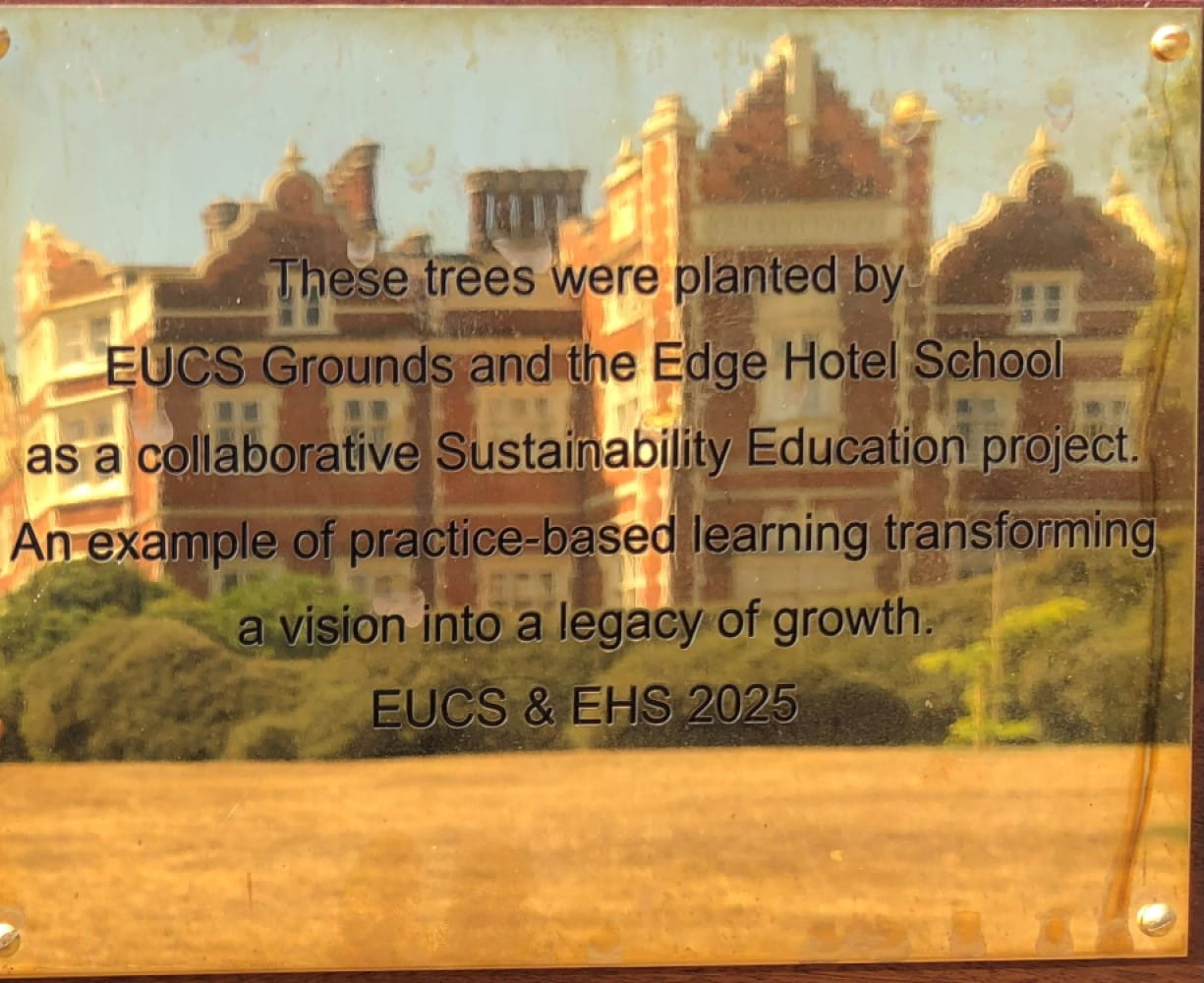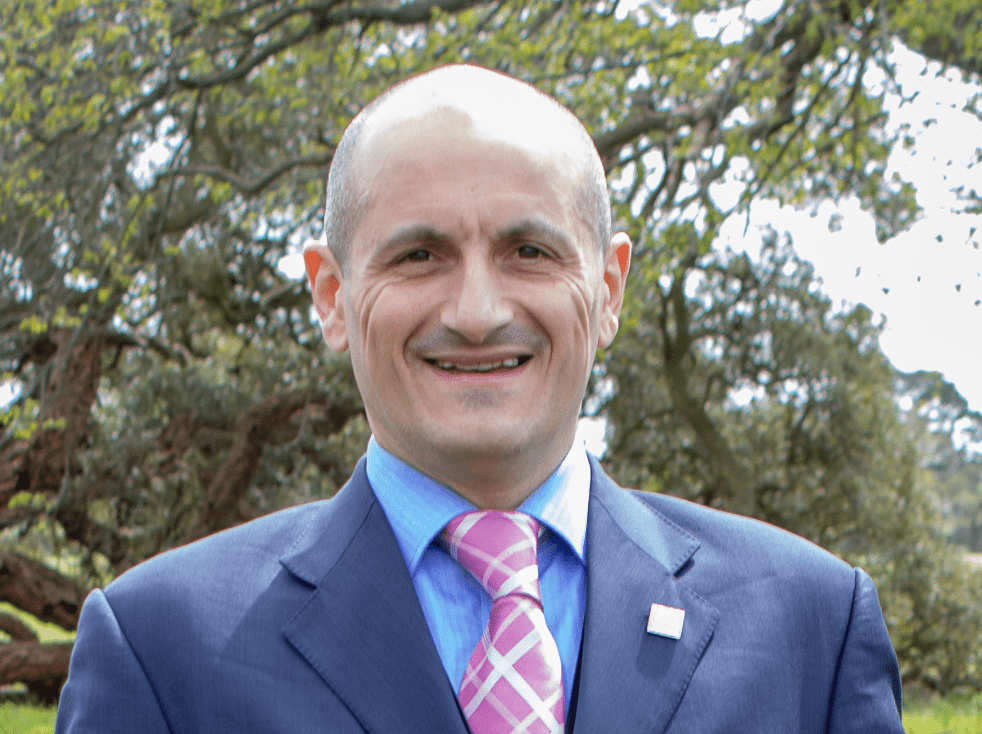A plaque, a park, and a loud legacy
This summer, a small but shiny plaque was installed in Wivenhoe Park to mark a student-led sustainability project, part of the EG221 module I’ve had the privilege to design and teach at the Edge Hotel School. At first glance, it’s just a neat square of brushed metal among trees. But for those who know the story, it carries deeper meaning.

Over the last seven years, students on the EG221 sustainability module have not just studied sustainability issues within their industry, they’ve acted on them. From replacing single-use plastic hotel key cards to developing sustainable packaging, from delivering multi-stakeholder food waste events to winning national competitions on raising sustainability awareness, and from assisting the UoE Sustainability team in planning and designing the Sustainable Essex Awards to creating a £3 menu for disadvantaged students (to name just a few). Edge Hogel School students have designed and delivered real-world projects. One of these projects, a long-term tree-planting collaboration with the UECS Grounds Team, now has a permanent marker in the Wivenhoe Park. Itself recently awarded the Green Flag for the ninth year running in national recognition of exceptional green spaces. To now have a student project commemorated within the park, signals something significant: that sustainability learning can take root in both place and people.
The plaque doesn’t bear any one name. And that’s fitting. It recognises the collective effort of students, who stepped into the role of changemakers, often for the first time. The plaque now sits in the open, doing what good education often does: working behind the scenes. There was no need for an official unveiling, no speeches or ceremony. Just a quiet moment of acknowledgement of education done well. And perhaps that is appropriate. Recognition comes in many forms. For these students, it came through the saplings they planted, and the roots they helped set down, in the soil, and in themselves.
This moment adds to a growing archive of real artefacts of educational work that often go unnoticed in official metrics. It’s one of those stories that shows what sustainability learning can look like in a vocational setting. It challenges the idea that impact requires a stage or spotlight to be meaningful. These students weren’t just completing an assignment, they were contributing to a living landscape and to a culture of care. As one of the students later reflected: “I’m proud to have been the first student to establish and lead such a meaningful project, which I hope will endure for years to come”.
The plaque now stands as part of those stories. It marks not just what students achieved, but also the transformative space in which they did it. For those of us working in education, it’s a reminder: legacy isn’t always loud. Often, it’s planted, not performed.

